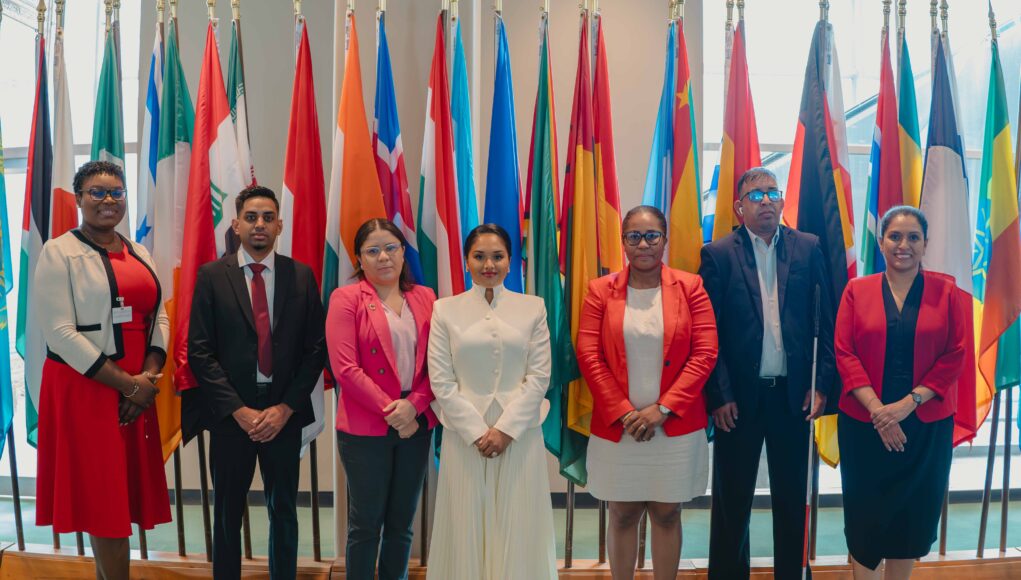In a her address at the 17th Meeting of the Conference of State Parties to the Convention on the Rights of Persons with Disabilities at the United Nations headquarters in New York, Guyana’s First Lady Arya Ali highlighted the pressing issues faced by persons with disabilities. Mrs Ali underscored in her address, the urgent need for increased international support and financing.
Mrs. Ali began her speech by emphasizing the urgent need for a world where individuals with disabilities are empowered to live dignified and fulfilling lives. She stressed that, despite global advances, significant barriers remain, particularly in developing nations. “In a truly inclusive and sustainable world, persons with disabilities must be empowered to live a life with dignity and respect; a life where they can realize their potential,” she declared to a room filled with dignitaries and international delegates.
The First Lady painted a stark picture of the current reality for persons with disabilities in developing countries, where many face unemployment and lack access to education. According to Mrs Ali, “The majority of persons with disabilities of working age are unemployed, and many children with disabilities do not attend school.” These systemic issues, she noted, are compounded by a lack of institutional support and widespread societal attitudes that marginalize this community.
Mrs Ali also highlighted Guyana’s proactive measures to address these challenges. The country, guided by the Convention on the Rights of Persons with Disabilities, has enacted comprehensive legislation and adopted a multifaceted approach to ensure that persons with disabilities receive equal treatment and opportunities. A key element of this approach is a nationwide register of persons with disabilities, which informs government policies and interventions.
“In Guyana, all persons living with permanent disabilities are eligible to receive monthly financial assistance throughout their lives,” she explained. This policy is complemented by the provision of assistive and mobility aids at no cost. Furthermore, the country has focused on supporting children with disabilities through extensive teacher training programs, ensuring that educational institutions are better equipped to cater to their needs.
A significant milestone in Guyana’s disability rights journey she said is the establishment of the Mahaica Disability Complex in 2023. This facility serves as a training and empowerment center, offering vital skills development for persons with disabilities. The initiative is bolstered by business grants and interest-free loans, aimed at fostering economic independence within this community.
As part of her ongoing efforts, Mrs Ali is spearheading the creation of a Business Centre dedicated to advancing the financial independence of persons with disabilities. “The center will offer a range of products and services to Guyana’s growing consumer market,” she said, highlighting the potential for economic empowerment through entrepreneurship.
In her address, Ali also underscored the importance of leveraging technology to bridge gaps and promote inclusion. Guyana is focusing on enhancing digital connectivity and utilizing technology to provide learning opportunities for persons with disabilities. This initiative is particularly crucial in the digital age, where access to technology can significantly impact educational and economic outcomes.
While outlining Guyana’s achievements, Mrs. Ali candidly addressed the challenges faced by developing countries with limited resources. “Developing countries with limited human and financial resources face major challenges in providing necessary support for persons with disabilities,” she remarked, noting the persistent barriers posed by inadequate institutional, technological, and financial capacities.
In a poignant appeal to the international community, Mrs. Ali called for greater financing and support for Disability-Inclusive Development in developing nations. “Guyana calls for greater international financing for Disability-Inclusive Development in developing countries,” she urged, emphasizing the need for collaborative efforts to ensure that no one is left behind.













